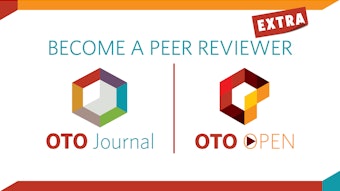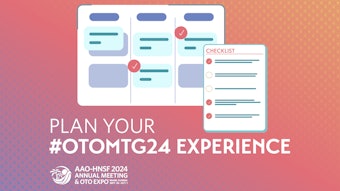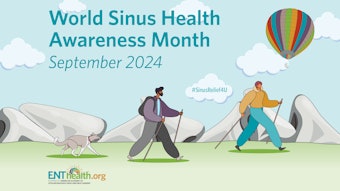Why Are Things So Difficult?
If physicians and the public do not demand changes to simplify the healthcare experience for both providers and recipients of healthcare services, they will not happen.
 James C. Denneny III, MD
James C. Denneny III, MD
AAO-HNS/F Executive Vice President and CEO
I would consider myself to have at least a general knowledge level related to healthcare delivery equal to the average United States citizen and would assume to have no trouble negotiating and navigating the process. Not so fast. Two of the Academy’s brightest staff members recently went through the process and warned me it was a protracted mission. It is in no way a simple process if you have any medical problems requiring medications. There is a special service provided by Medicare, via the Centers for Medicare & Medicaid Services (CMS), to help eligible citizens make sense of all the choices they have, often taking multiple calls and months to complete. I started the process in June and have not yet completed the process as of August 1. In calendar year 2025, the $2,000 cap on out-of-pocket Part D pharmaceutical costs will be a significant benefit but will not simplify the decision making.
Why should a transaction that millions need to make every year be so complex that even individuals familiar with the healthcare delivery system find it difficult to navigate even when using the CMS-designated assistance? Choice has value, but so does a standardized process that delivers foundational benefits without adding unnecessary stress to an important life-changing transition that carries notable challenges itself.
A significant portion of my job at the Academy revolves around legislative, regulatory, and private payer advocacy, all of which carry their own version of procedural frustration in dealing with presumably straightforward situations that would seem to lend themselves to some form of commonality, which would materially save time and resources while accomplishing the same goal.
- Why are patient-related data-sharing barriers and predatory pricing allowed to persist among the multiple entities participating in their care when the recognized and agreed-upon benefits are so great?
- Why can’t we have a uniform set of insurance payment coverage policies used by all payers to simplify the existence of providers and patients alike while resulting in more timely and cost-effective care?
- Why can’t the Food and Drug Administration approval process for new devices, pharmaceuticals, and expanded indications be coordinated with studies that will satisfy the “experimental” and “investigational” tags used to avoid payment by the insurance industry?
- How do you define “experimental” and “investigational” when discussing new technology related to devices and pharmaceuticals? It is hard to meet a standard with no clear definition.
- Why can’t we adequately remedy the documented disparity in payment for medical care and services rendered for all groups providing the same care and services?
This list contains a few of the many “frequent flyers” I encounter on a regular basis in our work at the Academy. Undoubtedly, I know that each of our members could add additional situational questions that affect and bother them as much as my list irritates me. In my experience, vague and byzantine definitions and processes remain in place because of the perceived benefit the authoring entities garner from maintaining a system that is more difficult to formulate definitive arguments to overcome a questionable policy. (Does “experimental and investigational” ring a bell?)
These circumstances certainly occur in other areas outside of healthcare delivery. As healthcare delivery comes to the forefront and approximate future, it is essential that we look closely at questions like those I have listed as well as others and simplify the experience for both the provider and recipient of healthcare services. Not only will this reduce the stress on each, but it will also save significant resources that can be deployed to improve and expand care into areas not currently served.
The biggest stumbling block will be the unwillingness of the “untouchable” major entities controlling healthcare to each give a little to improve the system a lot. The fiefdoms that have been established will be very challenging to address and will take true leadership to accomplish. If physicians and the public do not demand these changes, they will not happen.




















